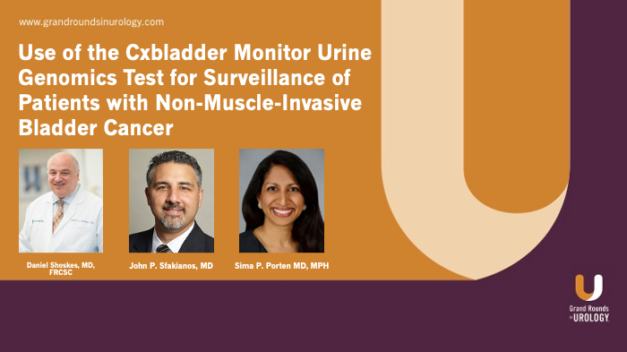Use of the Cxbladder Monitor Urine Genomics Test for Surveillance of Patients with Non-Muscle-Invasive Bladder Cancer
Daniel Shoskes, MD; John P. Sfakianos, MD; and Sima P. Porten, MD, MPH; discuss the Cxbladder Monitor Test in surveillance of NMIBC patients.
Read More
